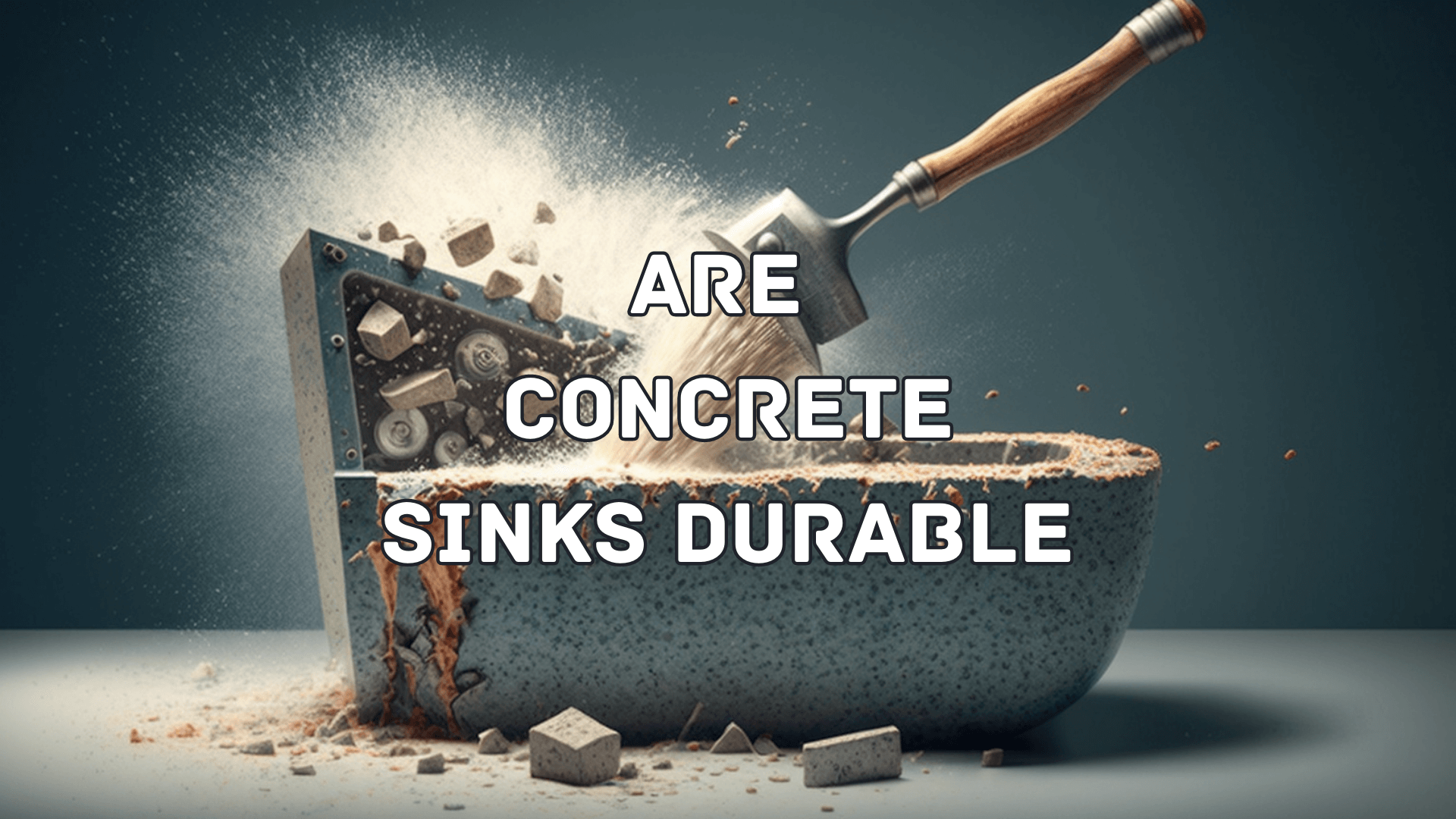Concrete sinks have become a popular trend in recent years, and it’s easy to see why. They offer a unique and stylish look that can give your kitchen or bathroom an industrial and modern feel. But the question remains: are concrete sinks durable? You can also take a closer look at the pros and cons of concrete sinks and whether they can withstand the wear and tear of daily use.
Concrete sinks can be a stylish and unique addition to any bathroom or kitchen. However, they do come with some downsides, including their weight, porousness, and tendency to chip, crack, and scratch. To ensure the durability of your concrete sink, it’s important to choose a reputable brand that uses high-quality materials, properly install the sink with the proper support, and regularly seal the sink to protect it from scratches and stains.
First of all, let’s talk about the pros of concrete sinks. They look freaking cool, there’s no denying that. They give your kitchen or bathroom that industrial-chic vibe that’s so in right now. And if you’re into the whole sustainability thing, concrete sinks are often made from recycled materials, so you can feel good about your eco-friendly choice.
But, as with anything in life, there are cons. Concrete sinks are heavy, like really heavy. So if you’re planning on installing one yourself, you better have some serious muscle. And if you’re not careful during installation, that heavy sink could come crashing down and cause some serious damage.
Another downside is that concrete is porous, which means it’s prone to staining and absorbing liquids. So if you’re a bit of a messy cook, you might want to think twice about a concrete sink. And don’t even get me started on the potential for chips and cracks. Concrete sinks are not immune to the laws of physics, folks. Drop a heavy pot or pan on that bad boy, and you could end up with a pricey repair bill.
Are Concrete Sinks Durable?
But back to the original question, are concrete sinks durable? Well, it depends on a few factors. First and foremost, the quality of the sink matters. If you go with a reputable brand like Native Trails, Concrete Wave Design, or Sonoma Cast Stone, you can be pretty confident that your sink will last. These companies know what they’re doing and use high-quality materials to ensure the durability of their products.
Another factor to consider is installation. Like I mentioned earlier, concrete sinks are heavy, so if you don’t install them properly with the right support, you’re setting yourself up for disaster. Unless you want your sink crashing through the floor and landing on your downstairs neighbor’s head, make sure you get a professional to install it.
And finally, maintenance. Like any sink, a concrete sink needs to be properly cared for to ensure its longevity. Regularly sealing your sink will help protect it from stains and scratches. And if you do end up with a chip or crack, it’s important to address it quickly to prevent further damage.
Do Concrete Sinks Chip Easily?
Concrete sinks can chip if they are hit with a hard object. However, the likelihood of this happening depends on the quality of the sink and how well it is installed. If you choose a high-quality sink from a reputable brand like Native Trails, Concrete Wave Design, or Sonoma Cast Stone, you can minimize the risk of chipping.
Do Concrete Sinks Crack?
Concrete sinks can also crack if they are hit with a hard object or if they are not properly supported during installation. However, if you choose a sink from a reputable brand that uses high-quality materials, you can reduce the risk of cracking. Brands like Trueform Concrete, Betonas, and Kast Concrete Basins are known for their high-quality concrete sinks that are less prone to cracking.
Do Concrete Sinks Scratch?
Concrete sinks can scratch easily, especially if they are not sealed properly. However, most concrete sink manufacturers recommend sealing the sink every six months to a year to protect it from scratches and stains. Brands like Sloan Stone Design, Gravelli, Kreoo, and JSG Oceana offer concrete sinks that are scratch-resistant and easier to maintain.
Do Concrete Sinks Need to Be Sealed?
Yes, concrete sinks need to be sealed to protect them from scratches and stains. Most manufacturers recommend sealing the sink every six months to a year to maintain its durability and appearance. You can also choose a sink from a brand that offers scratch-resistant and stain-resistant options, like Gravelli, Kreoo, and JSG Oceana.

